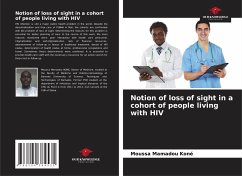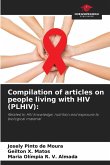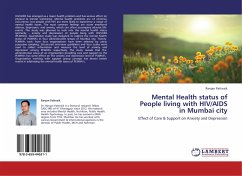HIV infection is still a major public health problem in the world. Despite the decentralisation and free care of PLWHA in Mali, the cohorts are confronted with the problem of loss of sight. Determining the reasons for this problem is essential for better planning of care. In the course of this work, the main reasons mentioned were: poor interaction with health care personnel, stigmatisation and self-stigmatisation, lack of financial resources, abandonment of follow-up in favour of traditional treatment, denial of HIV status, deterioration of health status at home, professional occupations and travel. Sometimes these determinants were combined. It is essential to provide health-care staff with the necessary resources for an active search for those lost to follow-up.







